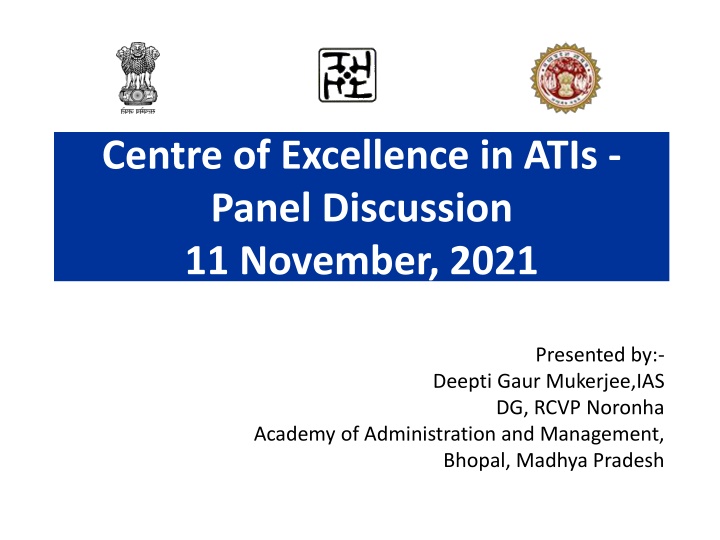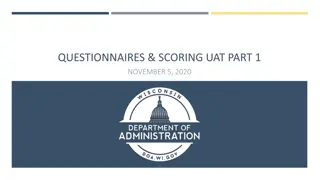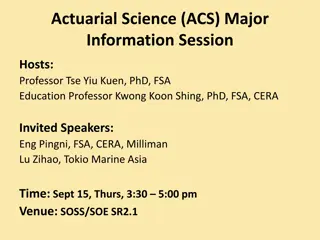
Role of Centres of Excellence in Advancing Administrative Training Initiatives
Explore the significance of Centres of Excellence (CoE) in enhancing administrative training through leadership, best practices, research, and capacity building in specific sectors. Understand the criteria, advantages, and functions of CoEs, along with their role in thematic expertise and resource sharing.
Download Presentation

Please find below an Image/Link to download the presentation.
The content on the website is provided AS IS for your information and personal use only. It may not be sold, licensed, or shared on other websites without obtaining consent from the author. If you encounter any issues during the download, it is possible that the publisher has removed the file from their server.
You are allowed to download the files provided on this website for personal or commercial use, subject to the condition that they are used lawfully. All files are the property of their respective owners.
The content on the website is provided AS IS for your information and personal use only. It may not be sold, licensed, or shared on other websites without obtaining consent from the author.
E N D
Presentation Transcript
Centre of Excellence in ATIs - Panel Discussion 11 November, 2021 Presented by:- Deepti Gaur Mukerjee,IAS DG, RCVP Noronha Academy of Administration and Management, Bhopal, Madhya Pradesh
Introduction Centre of Excellence (CoE) may be conceived of as a Centre that provides leadership, information on best practices, research, support, training of trainers and capacity building for a specific sector/s
Concept of Centres of Excellence in ATIs Concept of CoE in vogue in higher education, skill development ATIs can be developed as CoE in identified sectors/ thematic areas. Thematic- cutting across sectors, e.g. RTI, Gender responsive governance, Procurement rules, IT- e-governance, cyber laws and cyber security, IT in service delivery, Financial Management, Project management, Contract Management, PPP, Leadership, etc. Sectoral- Urban development, Rural development, Agriculture, Climate change and energy Education, Industry, Infrastructure development etc. Management, Disaster security, Nutrition, School
Role/Functions Expertise in thematic/ sectoral area Identification & dissemination of Best practices Research & support for implementation Training of trainers Capacity building of professionals Sharing, showcasing of resources Act as a think tank To create network of nearby institutes for capacity building and mentoring support.
Advantages Expertise in particular sector Availability of faculty, reading material, latest updates under one umbrella Other ATIs/ CTIs, departments benefitted as they know exactly whom to contact for what Exchange of resources could be easily done Recognition for that ATI as specialised in that sector A healthy competition among ATIs to secure recognition as experts in a particular field
Criteria Physical location, geographical / cultural setting e.g MP could specialise Environmental protection, Jharkhand in mining, etc Infrastructure both soft and hard, proven track record could be some other criteria. Accreditation could be done by CBC in terms of quality. in Tribal/Forest affairs,
Points for discussion Development of criteria for selection of ATI and its sector/ theme Selection of ATI and its sector/ theme Creating a separate autonomous unit within ATI with dedicated staff & laying down performance standards Funding , strengthening by GOI Networking of CoE across CoEs/institutions in public, private sector






















